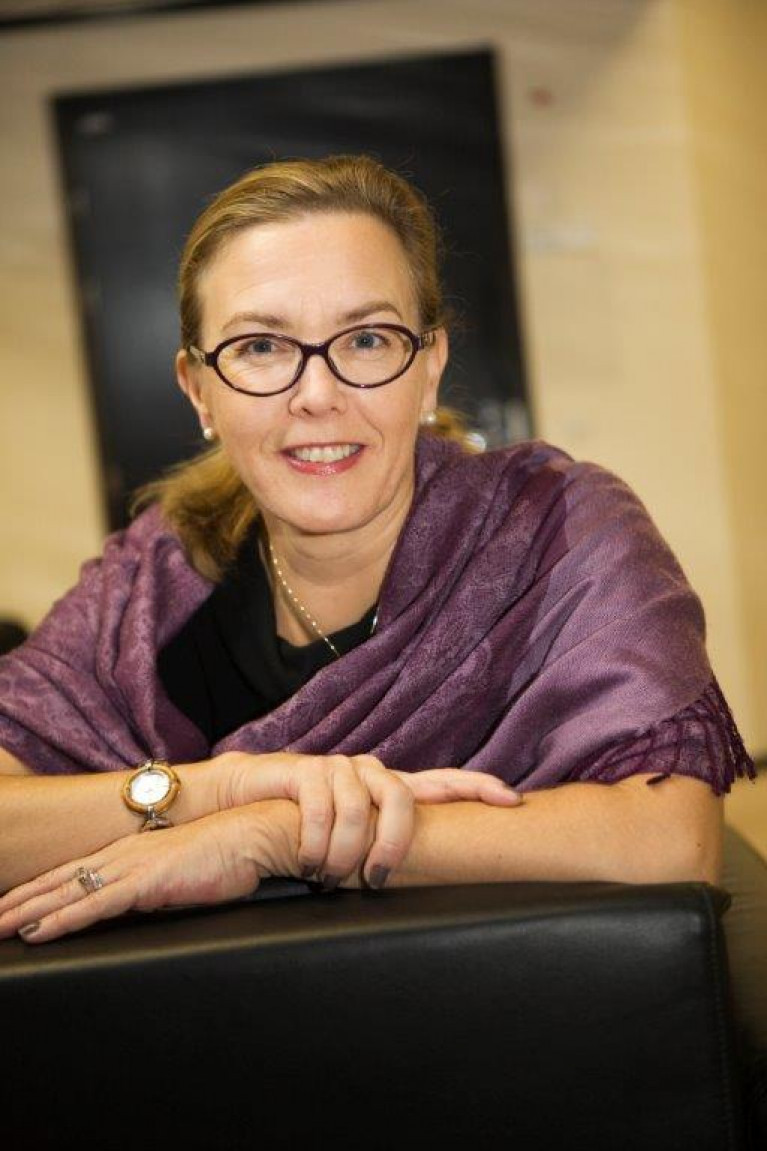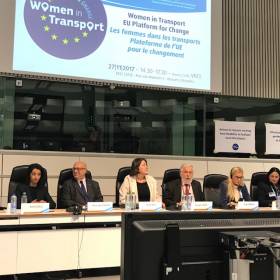Displaying items by tag: Women In Transport
Women participating in the European Sea Ports Organisation committees has increased in 2020 compared to the last two years, when ESPO started monitoring the gender balance of its internal meetings.
Taking all technical committees together, women represent 35,10% of the port professionals who attended ESPO meetings in 2020. This shows an overall increase of 4% compared to 2019 and 2018.
A closer analysis of the results of the different technical committees reveals that all committees have seen an increase in the share of women attending the meetings in 2020, with the exception of the Executive Committee, which saw a decline of only 2%. The Port Governance Committee, the Sustainable Development Committee and the Cruise and Ferry Port Network all had an almost equal representation of men and women at their meetings. The Blue Growth Network, which was set up in 2019, registered 59% of women attending the meetings, the highest number of all the technical committees. The newly set-up Energy Network, as well as the General Assembly and Executive Committee, gathered on average one third of women at their meetings (30%, 27%, and 34%, respectively). Women made up a quarter of port professionals attending the meetings of the Economic Analysis and Statistics Committee (25%) and the Intermodal, Logistics & Industry Committee (24%) last year.
In November 2020, the General Assembly of ESPO elected Annaleena Mäkilä, Managing Director, CEO of the Finnish Port Association, as Chair of ESPO. As Afloat reported last year, she became the first woman to chair the organisation.
The ESPO secretariat office counts more women than men (5 to 4).
Annaleena Mäkilä, ESPO Chair “In 2017, the Commission put the finger on the low percentage of women active in the transport sector. We then decided to monitor and report on the the proportion of women among the port professionals attending the different ESPO meetings. It is good to see that in most committees there is a positive development. This positive development is also reflected in the number of female chairs in ESPO. Besides our newly elected Chair, 4 committees are now chaired by a woman,” concludes Isabelle Ryckbost, Secretary General ESPO.
Since 2018, ESPO has been monitoring the gender balance through the effective attendance of port professionals to the different meetings of the organisation. The results of this monitoring are published each year on the occasion of the International Women’s Day. ESPO is also one of the founding members of the European Commission’s initiative “Women in Transport – EU Platform for change”, launched in 2017.
ESPO Participates in Launch of EU Platform “Women In Transport”
#WomenInTransport - The EU Commission and the Economic and Social Committee launched on Monday a new platform aiming at strengthening Women’s employment and equal opportunities for men and women in the transport sector.
Only 22% of the people working in the transport sector are women. In waterborne transport, it is only 20%.
The specific objectives of the platform are to improve the opportunities for women in management and decision making, to improve the working conditions for women in the transport sector and to change the culture.
European Sea Ports Organisation (ESPO) is one of the participating organisations in the platform and thus member of the platform.
To take the message forward, ESPO intends to bring together the human resource managers of European ports not only to discuss recruitment policies, but also to exchange possible best practices and see if any lessons can be learnt.
Next to being a member of the Platform, transport organisations can sign the Declaration. More information about the Platform and the Declaration can be found here:
In another notable development according to ESPO was the EU Parliament and Council in Reaching an agreement on Shipping's CO2 Emissions
The agreement reached earlier this month is in regard to the CO2 emissions from shipping that was agreed to align any EU action with the International Maritime Organisation (IMO) timeline.
This compromise is a part of the first reading agreement on the review of the EU Emission Trading Scheme (ETS) Directive. The agreed text wants the IMO to introduce an ambitious emission reduction target and accompanying measures by 2023.
In particular, the agreement sets two milestones by saying that an IMO emission reduction target in 2018 as part of its initial strategy has become a matter of urgency and that action either at IMO or EU should start from 2023.































































